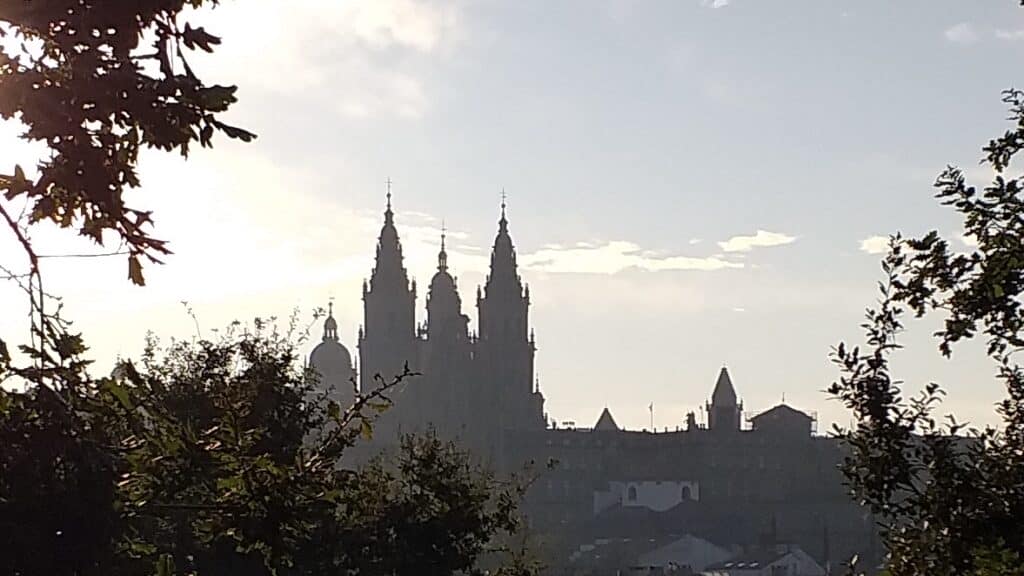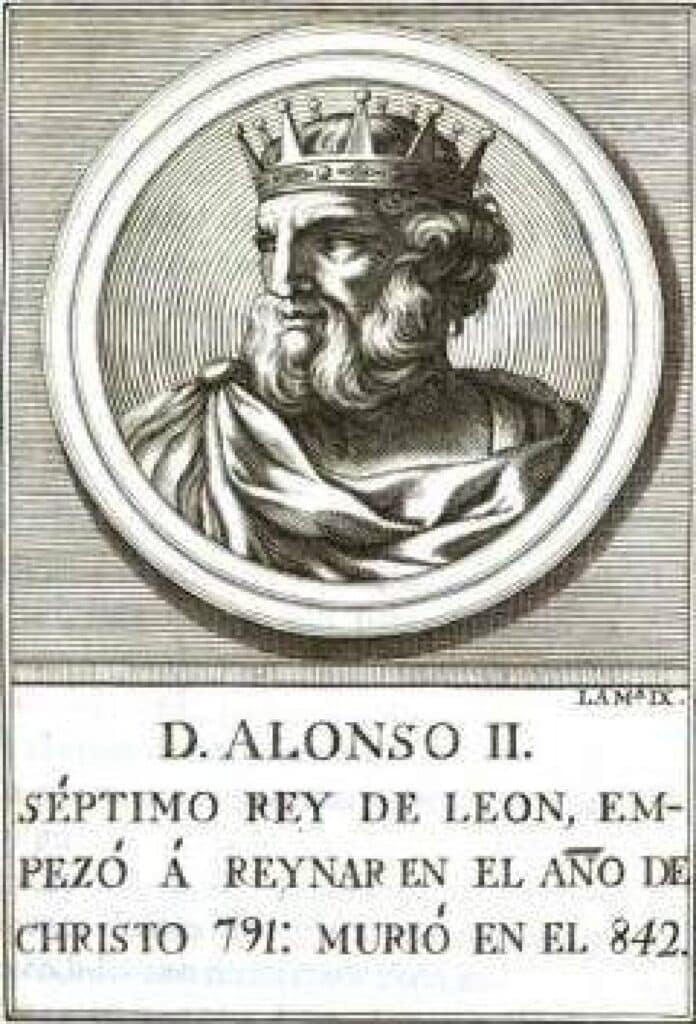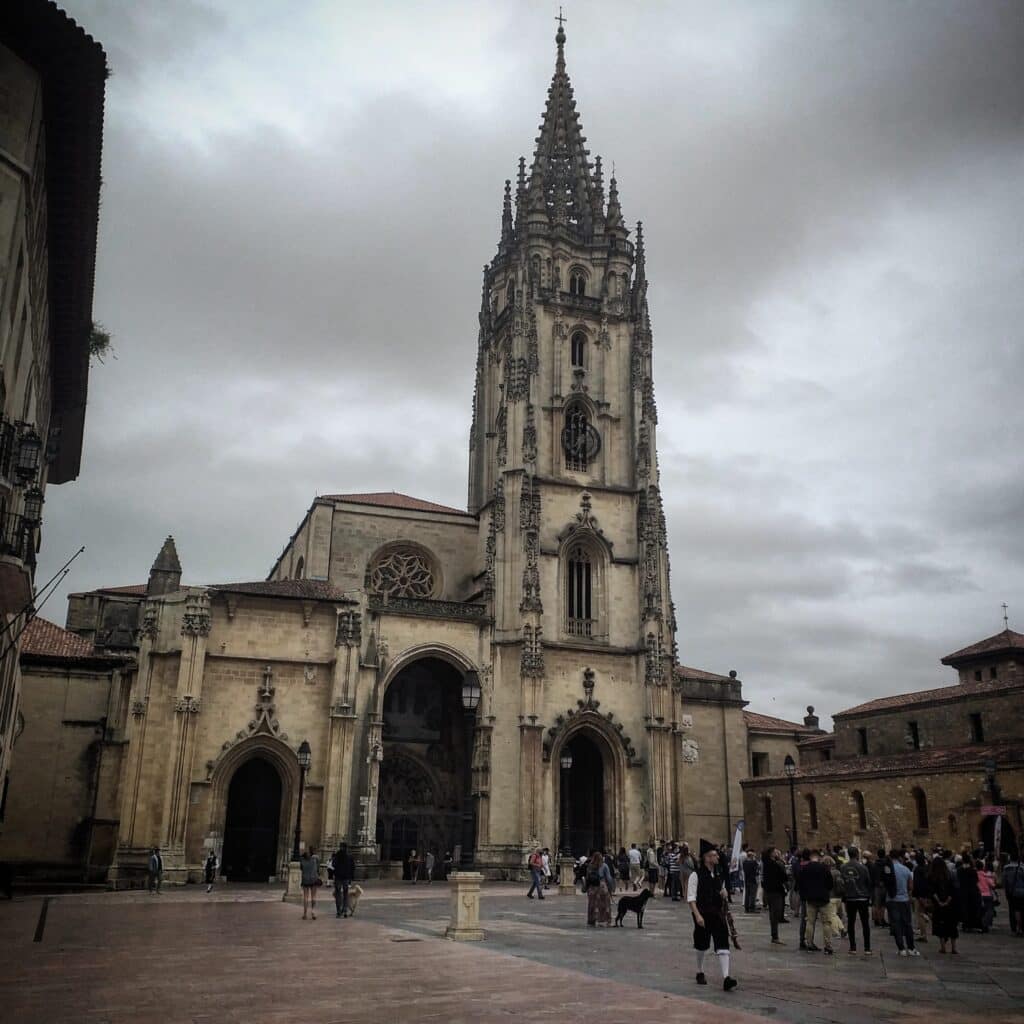The Asturian king Alfonso II, known as the Chaste as he did not have descendants, reigned from 791 to 842 AD. He was born in Oviedo (Asturias) around the year 759, and was the son of the the Asturian King Fruela I and the Basque noblewoman Queen Munia.
Alfonso II was crowned king of the Christian kingdom of Asturias in 783, although he was dethroned by his uncle King Mauregato. that same year and was forced to flee to the Basque Country, seeking refuge with his mother’s family.
Tradition believes that King Mauregato was responsible for the yearly tribute of 100 Christian maidens to the Muslim Emirate.
Eight years later he was crowned King of Asturias again, reigning until his death in 842. His reign was characterised by numerous court intrigues and continuous military campaigns against the Emirate of Córdoba. He even survived two attacks by Muslim armies and their consequent sack of his capital in Oviedo. He would later retaliate by attacking and sacking the Muslim city of Lisbon.
Alfonso II was also contemporary to Charlemagne with whom it appears he may have maintained diplomatic contacts. This would have made sense as they both shared a common cause against the Muslim forces in the north of the Iberian Peninsula.
During his reign in the year 813, the tomb of the Apostle Santiago was discovered and Alfonso II played an important role in the process of verification and initiating the pilgrimage.
Indeed, he apparently travelled to the site of the discovery and built a church (present day Santiago de Compostela) becoming in this manner the first pilgrim of the Camino. This first church was consecrated in 834 and tradition believes that 6 years later it would welcome the next group of six Asturian pilgrims.
Apart from chaste, Alfonso II was definitely an astute king. Through the discovery of the apostle’s tomb he appropriated a thousand year old Celtic route that led to Finisterre (the end of the world) on the west coast in Galicia, giving the route a new Christian meaning as well as providing a pretext for a steady influx of pilgrims and settlers from the rest of Europe over the next centuries. These pilgrims would eventually play an important role in securing the territories that had been conquered from the Muslims.

On our Camino de Santiago Tours (French route), we visit the Monastery of Samos where Queen Munia, Alfonoso II’s mother, found refuge at the death of her husband.








